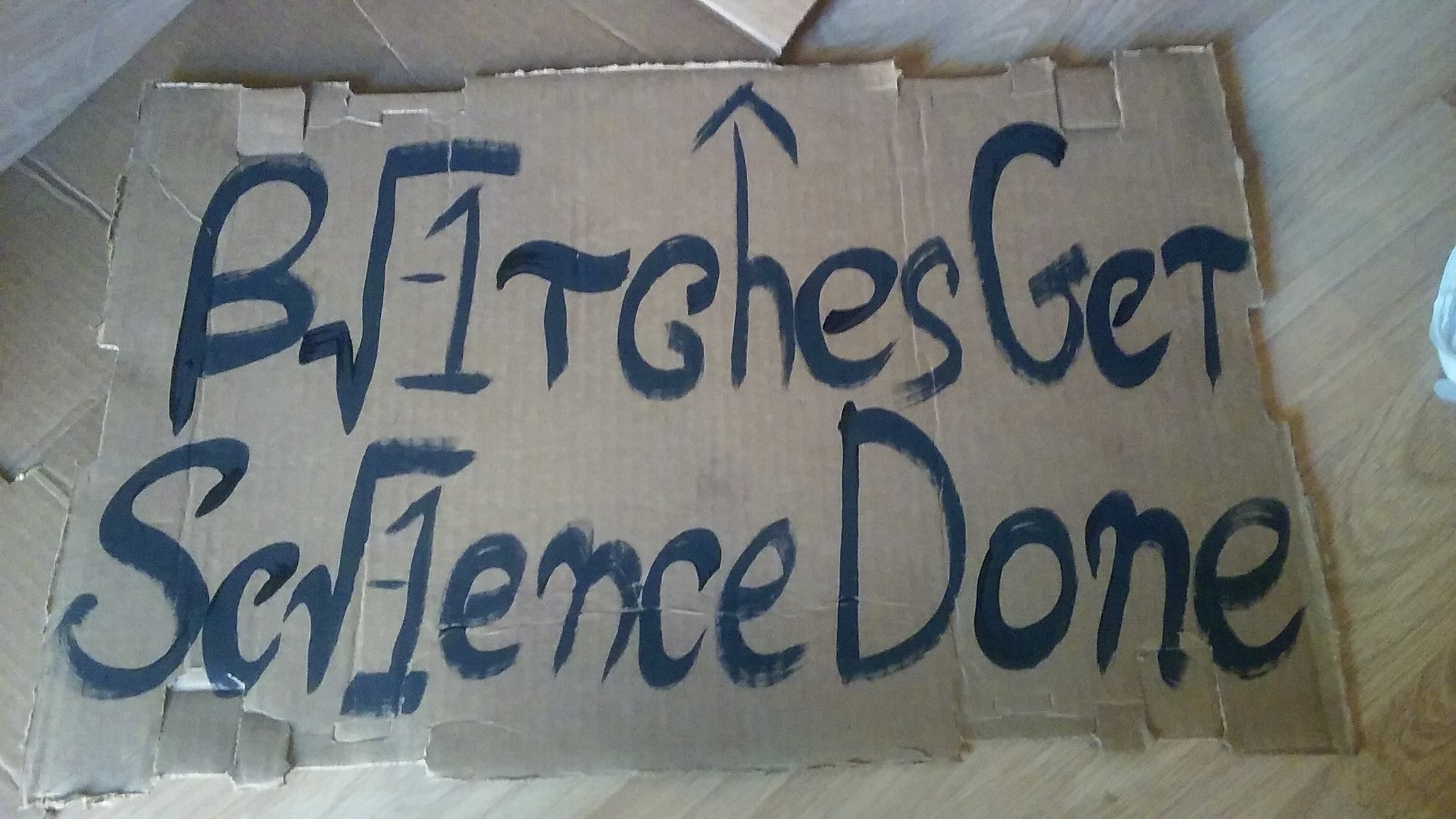Last weekend I attended Rose City Comic Con (RCCC) up in Portland Oregon with the BF. It was super fun and it was a great reminder of how great conventions are for building community, so to ease into a series of blogs on what I term “CONmunity engagement” (community engagement at conventions) I wanted to give a brief description of what comic conventions are like. I assume the majority of my readers have attended at least one but even if you are invested in a fandom, it can be intimidating to go to one especially, if you don’t have a convention buddy.
Comic conventions involve a bunch of different “geek” or “nerd” fandoms. This means that in most cases there will be celebrities, artists, writers, video and board games, as well as all sorts of other meet-ups and opportunities for attendees. If you enjoy something considered “nerdy” or “geeky” you will find community at a comic convention. This also means that there are a variety of entertainment types to appeal to these different communities. For the purposes of this article, I separate these into panels, individual meetings, and shopping.
Specifically, Portland has a high proportion of comics writers and artists and recently Image comics moved their headquarters there to better serve that community. This means that RCCC ends up being a large enough convention to draw big names (from comics and elsewhere) but small enough to be unintimidating. It’s also still affordable to attend and you get a great cross section of the type of work going on in comics, shows, and video games.
Day One: Friday Cosplay: Saya from Deadly Class
Day ones are usually petty chill (assuming it’s a three-day con). They start in the afternoon and not all the special guests (artists, writers, celebrities, etc) are there. Everyone’s setting up and getting prepared for what the con will be like. If you are interested in seeing a big name and they are going to be there on Day One, go to Day One. Generally, their lines will be shorter as many people work on the weekdays, which Day One’s usually fall on, and there’s a tendency to wait until the last minute to do things like ask for a commission or get a signature. Early birds get well-rested creators signing and drawing stuff.
Panels: I attended one that day and that was the Bitch Planet panel. As a creation (comic, movie, show, etc.) specific panel, it included the all creators associated with the book, gave us updates about when new issues were coming out, and then opened the panel up for questions. Creation specific panels are a great way to be introduced to works that sound cool, for keeping abreast of the latest news specific to that work, and for getting any detailed creation-specific questions off your chest. It was a great panel (I love Bitch Planet) and we got to find out about when the new arc will start.
Individual meetings: As I said, Day One is great for meeting creators who might get busy over the next few days at the con as the crowd gets larger. This meant that well-known creators like Matt Fraction and Chip Zdarsky had short lines and so getting to chat with them didn’t mean a line of 30 people wondering why you are taking so long. For me, it meant that I got to ask if I could get my amazing ODY-C tights signed in the next few days. I also introduced myself to the awesome Yoshi Yoshitani, who was going to be on my panel on Sunday.
Shopping: If you are dying to grab a limited supply item and you do not think it is going to go on sale, grab it on Day One. This is generally the case with items produced by creators themselves, rather than shops who don’t want to carry lots of inventory back with them. Day one for me involved buying an awesome ODY-C pin from Matt Fraction.
Day Two: Saturday Cosplay: Kalliyan from Shutter
If a Day Two, is a Saturday, it will likely be the busiest day of the con. This means big crowds all day. They open early but that doesn’t mean getting there exactly as they open will be the best. They generally open in the morning but probably a little after the quoted time due to scheduling and other sorts of preparation. I’d recommend, if you don’t have an early entrance pass, thirty minutes to an hour after they open will mean easy and relaxed entrances. Day twos are busy, so if you want a commission try to be there early, and if you aren’t, be prepared to wait to meet any of your favorite big name creators. Also be very aware of their schedules, usually posted on a personal website, which outlines when they’ll actually be at their table, so you don’t wander by 80 times wondering why they aren’t back yet. Day Twos (especially if they are Saturdays) usually mean a lot of programming, panels etc., so be aware of when large rooms open and close so you don’t get caught in huge throngs of people.
Panels: There are usually more panels on Day Two/Saturdays as earlier openings and later closings means more time to having events. For me and the BF, we attended the Spotlight on: Matt Fraction panel and the Sex Criminals Panel. The Sex Criminals panel was a Sex Criminals version of the Bitch Planet panel and hilarious. Spotlight panels are different than creation-based panels as it will have only up to two people, a moderator and the spotlit person. These are great chance for attendees to get to know an individual creator better, inquire about their ongoing projects, and ask them about their process. I do have a request though: Please don’t ask about getting around writers/artists block. I have heard this question asked at almost every spotlight panel and the answers do not vary much between individual creators. Their advice usually is: keep writing/drawing/creating even if it is crap, change projects for a time, and go do something to get inspired.
Individual meetings: Personally, this was a great day for individual meetings. The cosplay I wore was from a great comic called Shutter that finished this year and both the artist and writer were there. It can be kind of weird to go up to people you have never met and be like “HEY I DRESSED LIKE YOUR CREATION” but it’s really great. Both Leila Del Duca and Joe Keatinge were awesome to meet in person and loved my cosplay, which was super humbling. Also while I was in costume, the amazing Kelly Sue said she loved my earrings (made out of pipe cleaners and attached to another set of earrings), which was hilarious. I also got my ODY-C tights signed by Matt Fraction, which was great. The pen slipped so he wrote “It’s me I swear” on them as well.
Shopping: I broke my own rule and bought a bunch of stuff on Saturday. I picked up a Bitch Planet Eleanor pin that will join my previous Bitch Planet Pin and a new print from Valentine De Landro that reads “THEY ARE ALL MY SISTERS”. I picked up the Legend of Korra graphic novel and got to meet the artist, Irene Koh, and Kris Anka current artist on Runaways who was manning Jen Bartel’s booth. I also picked up Jen Bartel’s and Irene Koh’s collaboration of Korrasami. I stopped by Chris Sebela’s table to pick up Coffee Shop Dogs and Leila Del Duca’s Afar when I saw her in my cosplay.
Day Three: Sunday Cosplay: None, but I did combine my “We are not things” shirt with my ODY-C tights
Day Threes/last days are also usually pretty chill. However, it’s not the best time to get things signed, especially from big names, because that's when everyone remembers who they forgot to talk to, aka It's Crunch Time. There are smaller crowds and sales at vendor/store booths, as they don’t want to carry product home with them. This means that if you want a bunch of back issues or some last-minute con-exclusives this is a good time to go and haggle for the thing you’ve had your eye on.
Panels: Day three was the panel I moderated on Adaptation versus Appropriation. The panel was great and I am so thankful to have gotten the chance to moderate a panel with the awesome Tristan J. Tarwater, Yoshi Yoshitani, and Marissa Louise. My panel also represents a third kind of panel, which is centered on a particular topic of discussion. These usually involve collecting a group of creators to talk about a particular topic with the aim of providing advice to other creators or to comment on the state of a particular issue in comics. It was a great experience and I was happy to see how many people were interested to see us all speak. The other panel I attended was the Bitch Planet games panel, which focuses on confidence and community building games. As far as I'm aware it's unique-to-Bitch-Planet, kinetic, and fun.
Individual meetings: Getting to chat with Yoshi, Tristan, and Marissa before the panel was great. Also watching the room fill up was crazy and amazing. I also got to meet Ibrahim Moustafa who is an awesome artist. I also stopped by to say hello to a high school friend of mine, Hollie Mengert, who I re-met at GeekGirlCon the previous year. I also said hello to the Jayme Twins who are doing amazing work with their Darkroom Series that is fanart combined with old photographic styles. I loved their work at GeekGirlCon and they contacted me for some information about old-school archaeology to make their works feel more appropriate to the times they were referencing.
Shopping: Although there were great sales, I didn’t take advantage of them. I grabbed the last print copy of Ibrahim Moustafa’s Jaeger , which was a necessary purchase because Nazi-hunting obviously. I grabbed a set of connected enamel pins that Yoshi had done based on the Three Wise Monkeys pictoral maxim, I opted for the See the Evil set. Personally, enamel pins are some of the best things to get at cons as there’s no shipping cost and people come up with such amazing designs that you can rock a pin with any outfit. The last thing I did was pick up a new Rose City meets Stranger Things trucker hat (as seen in the above photo) with a Hellboy t-shirt (as seen in the photo below) from the con exclusives booth. It was the last day, and I got the last hat, so I haggled a bit from the volunteer behind the booth.

Overall, RCCC is a great con for level of any attendee. While I don’t take advantage of everything it has to offer, there’s a huge diversity of things to do, buy, and people to meet. I recommend attending if you’re in Portland when it’s going on and on top of all its other goodness, they have banned Nazi-related costumes for some really good reasons. I saw a set of those cosplays and in today’s world we need more Jaegers and fewer Nazi Hello Kitties. Next blog I’ll go into more detail about Conmunity engagement, what I mean by the term and who is being engaged.



























